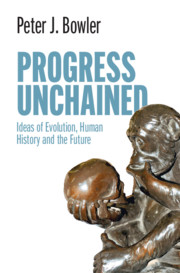Book contents
- Progress Unchained
- Progress Unchained
- Copyright page
- Contents
- Figures
- Preface
- 1 Introduction
- Part I The Ladder of Progress and the End of History
- 2 From the Chain of Being to the Ladder of Creation
- 3 The Hierarchy of Humanity
- 4 Progress to Paradise
- 5 Ascent to Utopia
- 6 End of an Era?
- Part II Towards a World of Unlimited Possibilities
- Bibliography
- Index
5 - Ascent to Utopia
The Quest for a Perfect Society
from Part I - The Ladder of Progress and the End of History
Published online by Cambridge University Press: 11 February 2021
- Progress Unchained
- Progress Unchained
- Copyright page
- Contents
- Figures
- Preface
- 1 Introduction
- Part I The Ladder of Progress and the End of History
- 2 From the Chain of Being to the Ladder of Creation
- 3 The Hierarchy of Humanity
- 4 Progress to Paradise
- 5 Ascent to Utopia
- 6 End of an Era?
- Part II Towards a World of Unlimited Possibilities
- Bibliography
- Index
Summary
Utilitarian thinkers focused not on spiritual development but on the ascent towards a perfectly ordered society in which all could lead a comfortable life. The emergence of more complex societies in the course of history was used by thinkers such as Condorcet to justify the hope of achieving such a society in the future. Opinions differed on the best way to approach the goal. British social theorists followed a model in which free-enterprise individualism gradually threw off the imperfections of less-mature forms of social order. In France, Comte's positivism saw rational planning by experts as the way forward, a position adopted by social planners into the twentieth century. The Marxists, meanwhile, modified Hegel's system of developmental stages to give a more radical vision in which revolution was the only way of achieving the final goal. All of these social thinkers accepted a significant role for technological innovation as a means of improving the human condition, but tended to see industrial development as following a predetermined path.
- Type
- Chapter
- Information
- Progress UnchainedIdeas of Evolution, Human History and the Future, pp. 119 - 148Publisher: Cambridge University PressPrint publication year: 2021

